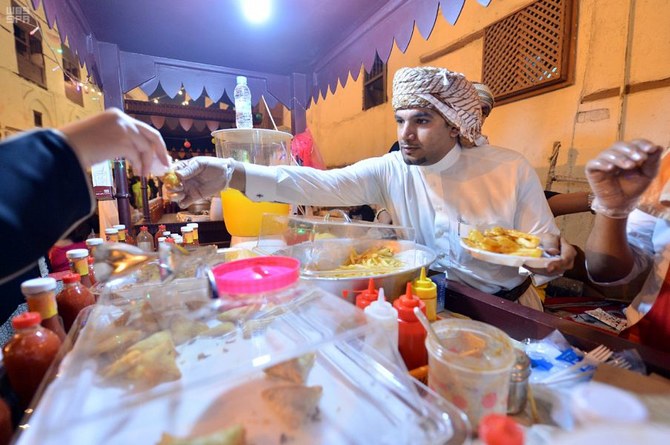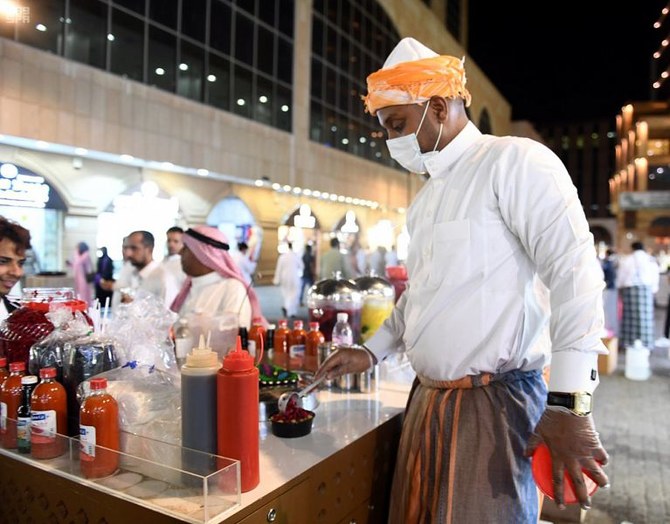JEDDAH: As Ramadan is a month-long celebration, many temporary businesses spring up during this time, which can be a good opportunity for people who want to try their luck at taking advantage of the momentum in the fasting month.
Experts believe that during the month of Ramadan, there is economic growth, not only for individuals but also for the whole country, due to high consumption in all sectors.
Ramadan is considered a lucrative opportunity by many who engage in selling products, particularly food items.
Trucks and stalls are a common sight all over Jeddah during the fasting month, offering a wide variety of food and drinks, the most popular of which include balila (boiled chickpeas), fried liver, fried potatoes, kunafa, fruit juices, sobia and coffee.
These stalls have become a prominent Ramadan feature, providing seasonal employment to entrepreneurs who take advantage of the night-long crowded streets and make extra money due to the high demand at this time of the year.
Twenty-year-old Abdullah Al-Majrashi, who specializes in making balila during the holy month, told Arab News that Ramadan is an opportunity for him and his brother not only to earn some extra cash but also to gain experience.
“It’s a great time to start up a business,” he said.
“What encouraged me to take up the initiative was the success of my friends who participated in last year’s Ramadan festival in Balad.”
His preparation for the stall lasts from the afternoon prayer until Maghrib every day. His average daily income from this business exceeds 500 riyals ($130), increasing during weekends due to the density of visitors.
Every day, stall owners at the busy Hamad Al-Jasser street in the Rawdah district of Jeddah enjoy business selling a wide range of goodies, from sambosa, sobia and desserts to traditional drinks.
Nineteen-year-old Badr Hawsawy, who sells the special Ramadan drink sobia on the side of the street, sets up his small business as early as noon and continues to trade until about 6 p.m.
He said: “Sobia is the favorite drink at iftar and we are, as a family, specialized in making it. This is the best time for me to make extra money.”
As we approached Hamadan Al-Rabghi, who owns one of the most famous stalls selling chopped liver, traditionally run by men in Balad, we could see a long queue of visitors waiting for their turn to get a taste of his fare.
Al-Rabghi, who took time off and was substituted by his son, told Arab News: “I have been selling fried liver in Balad for the last 20 years, and I think Ramadan is the month of blessing because we really make good business.”
He said it is a temporary job that generates money: “For many people like me, setting up a stall at these places is a means of earning extra income before the festive season.”
The 49-year-old said that business this year is much better than the last two years. He noted that there are more stalls in Balad now compared to before.
As our ride rolled to a stop in Balad, we noticed Ramadan stalls clustered close to each other and traders shouting loudly to attract customers.

















